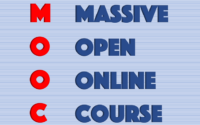
Tracking Students’ Mental Engagement Using EEG Signals during an Interaction with a Virtual Learning Environment
Monitoring students’ level of engagement during learning activities is an important challenge in the development of tutoring interventions. In this paper, we explore the feasibility of using electroencephalographic signals (EEG) as a tool to monitor the mental engagement index of novice medicine students during a reasoning process. More precisely, the objectives were first, to track […]
















